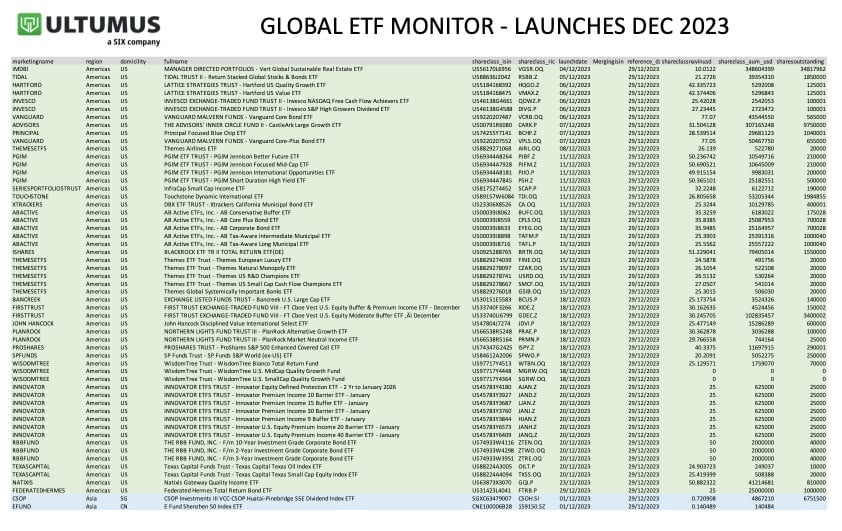USA
Inspire lists a biblical ETF
Evangelical Christian ETF issuer Inspire has listed another “biblically response” ETF in New York, the Inspire 100 ETF (BIBL).
BIBL will invest in companies that “align with biblical values” through an in-house index. The index will exclude companies that promote “the LGBT lifestyle”, porn, abortion, tobacco, alcohol, gambling and do "business in terrorist-sponsoring countries,” the prospectus says.
To get picked in the index and ETF, companies do not have to be Christian at all. They only have to have products and services, work conditions and pay, community and environmental standards that are above their peers. Thus companies that have better environmental and safety records than their competitors and pay their staff more than their competitors will be judged as adhering more to biblical values. They will therefore be more likely to get put in the index.
Inspire says it will use publicly available data and software to analyse how well companies conform to biblical values.
Analysis
Inspire has been something of a media darling this year. Its listings always prove a rich vein of copy for the financial press, some of which can be – perhaps unfairly – condescending. With the listing of BIBL, expect more coverage coming Inspire’s way (including this, hypocritical I know.)
One thing that’s interesting about BIBL is just how similar it is to a lot of the mainstream ESG ETFs. Reading the prospectus, one is struck by how it centralises environmental and social governance standards, and in a manner quite similar to more mainstream ETFs. The exclusion of pro-LGBT, abortion, porn, etc. companies - while likely to dominate commentary - seems more of a side issue in the investment strategy BIBL lays out.
Can a “biblically inspired” ETF like this work? In the United States at least, it’s certainly possible. Europeans and secular North Americans can sometimes forget that one-quarter of the US population is evangelical Christian. This, in theory at least, makes BIBL’s potential investor base huge. Inspire has already attracted over $100m to some of its ETFs – a big number for a boutique firm.
Another reason it may work is that it forms part of a broader trend. As ETFs turn asset allocation into a commodity, investors are increasingly seeing stock selection as an avenue for self-expression and as an avenue for politics. Thus consumers can view their choice of fair trade coffee as a means of fighting exploitation, and their choice of clothes brand as a means of fighting child labour.
In the ETF space, feminists are doing this with some success - and so the list of women’s empowerment ETFs grows. (State Street’s SHE won etf.com’s ETF of the year award). Environmentalists are doing it – hence we now have fossil fuel free ETFs. And now evangelicals are doing it too.




